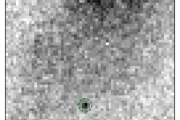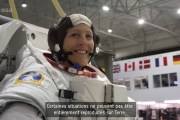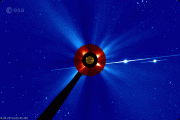
Copernical Team
A un año del mandato de Biden, la NASA mira hacia el futuro
 Durante el año pasado, la NASA ha hecho valiosas contribuciones a los objetivos de la Administración Biden-Harris: liderando a nivel mundial, abordando el problema urgente del cambio climático, creando empleos bien remunerados e inspirando a las generaciones futuras.
Durante el año pasado, la NASA ha hecho valiosas contribuciones a los objetivos de la Administración Biden-Harris: liderando a nivel mundial, abordando el problema urgente del cambio climático, creando empleos bien remunerados e inspirando a las generaciones futuras. NASA to Discuss Webb’s Arrival at Final Destination, Next Steps
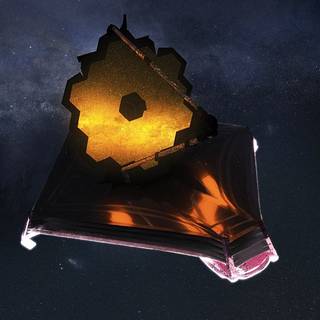 Scientists and engineers operating NASA’s James Webb Space Telescope will answer questions about the mission’s latest milestones in a NASA Science Live broadcast at 3 p.m. EST Monday, Jan. 24, followed by a media teleconference at 4 p.m.
Scientists and engineers operating NASA’s James Webb Space Telescope will answer questions about the mission’s latest milestones in a NASA Science Live broadcast at 3 p.m. EST Monday, Jan. 24, followed by a media teleconference at 4 p.m. Update on Yutu-2 rover findings from far side of the moon
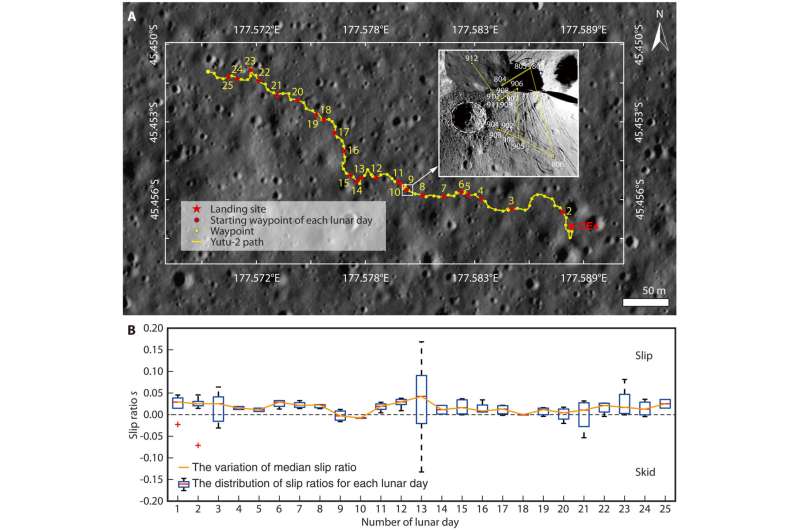
China satellite in close encounter with Russian debris: state media
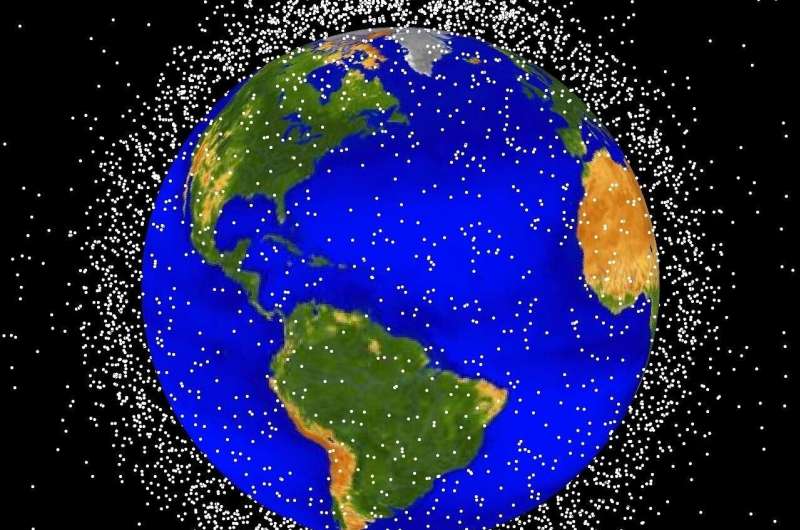
A Chinese satellite had a near collision with one of the many chunks of debris left by the fallout of a recent Russian anti-satellite missile test, state media reported.
Moscow blew up one of its old satellites in November in a missile test that sparked international anger because of the space debris it scattered around the Earth's orbit.
US officials accused Moscow of carrying out a "dangerous and irresponsible" strike that had created a cloud of debris and forced the International Space Station's crew to take evasive action.
Russia dismissed those concerns and denied that the space debris posed any danger but a new incident with a Chinese satellite suggests otherwise.
In the latest encounter, China's Tsinghua Science Satellite came as close as 14.5 metres from a piece of debris, the state-run Global Times reported late Wednesday.
The "extremely dangerous" event happened on Tuesday, the report added, citing a social media post by Chinese space authorities that has since been removed.
Space debris expert Liu Jing told the Global Times that it was rare for debris and spacecraft to be just a dozen metres apart, adding that the probability of collision this time was "very high" and should theoretically have called for evasive action.
How scientists tested the supersonic dynamic characteristics of the Tianwen-1 Mars Entry Capsule
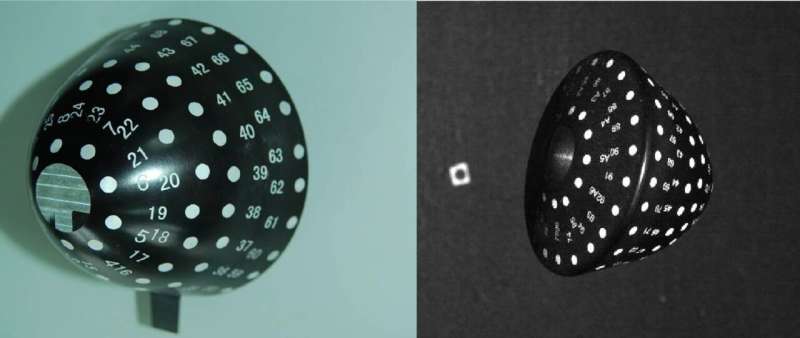
Ready to become a YGT?
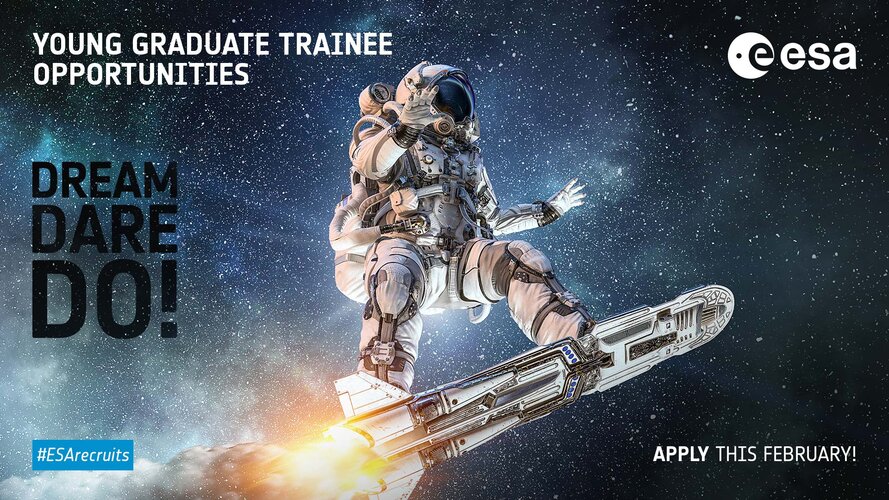
The call for 2022 Young Graduate Trainee opportunities is nearly open! Get ready to apply and prepare your CVs and cover letters ahead of schedule! Find out more about this year's call for applications below.
Russia's only female cosmonaut to travel to space in September

Russia's sole active female cosmonaut, Anna Kikina, is due to travel to the International Space Station in September on a Soyuz rocket, the national space agency said Thursday.
Kikina, a 37-year-old engineer, will be only the fifth professional woman cosmonaut from Russia or the Soviet Union to fly to space.
Last year, the Russian space agency Roscosmos said "our beauty" Kikina would fly aboard SpaceX's Crew Dragon as part of a cross-flights deal between Roscosmos and NASA.
On Thursday, Roscosmos said that if the two countries finalise the deal, Kikina will fly to space with the Americans in August, while NASA's Francisco Rubio will travel on a Soyuz.
But if the deal does not work out, she will travel to the ISS on a Soyuz rocket in September.
The last Russian woman to fly to space was Elena Serova, who spent 167 days aboard the ISS from September, 2014 to March, 2015.
Soviet cosmonaut Valentina Tereshkova became the first woman in space when she travelled into orbit on June 16, 1963.
Svetlana Savitskaya was the second woman in space, and the first woman to perform a spacewalk in July, 1984.
Mega iceberg released 152 billion tonnes of freshwater
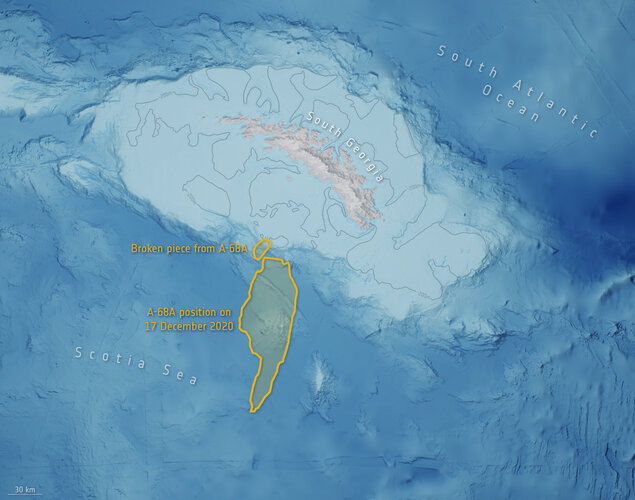
In July 2017, a giant iceberg, named A-68, snapped off Antarctica’s Larsen-C ice shelf and began an epic journey across the Southern Ocean. Three and a half years later, the main part of iceberg, A-68A, drifted worryingly close to South Georgia. Concerns were that the berg would run aground in the shallow waters offshore. This would not only cause damage to the seafloor ecosystem but also make it difficult for island wildlife, such as penguins, to make their way to the sea to feed. Using measurements from satellites, scientists have charted how A-68A shrunk towards the end
Sulphur dioxide from Tonga eruption spreads over Australia
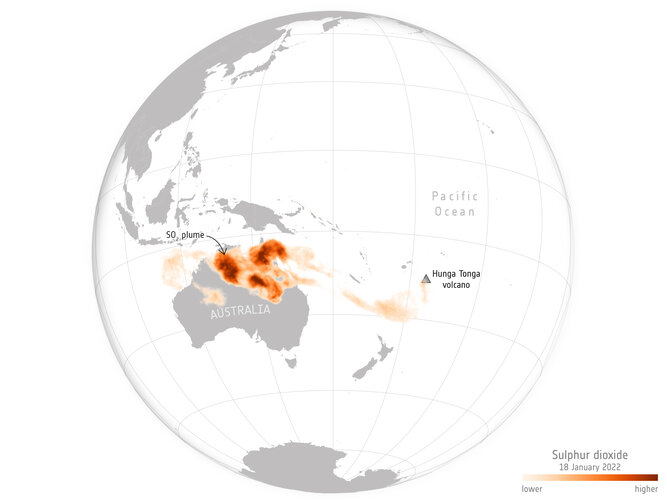 Image:
The Hunga-Tonga-Hunga-Ha'apai volcano near Tonga in the South Pacific erupted with such force on 15 January that it is thought to be the biggest eruption recorded anywhere on the planet in 30 years.
Image:
The Hunga-Tonga-Hunga-Ha'apai volcano near Tonga in the South Pacific erupted with such force on 15 January that it is thought to be the biggest eruption recorded anywhere on the planet in 30 years. IMDO, MDA complete flight tests for the Arrow Weapon System and Arrow 3 Interceptor
 the Israel Missile Defense Organization (IMDO) of the Directorate of the Defense Research and Development (DDR and D) at Israel's Ministry of Defense, together with the U.S. Missile Defense Agency (MDA) and Israeli Defense Forces, conducted a successful flight test of the Arrow Weapon System (AWS) and the Arrow 3 interceptor at a test site in central Israel.
AWS radars detected the target
the Israel Missile Defense Organization (IMDO) of the Directorate of the Defense Research and Development (DDR and D) at Israel's Ministry of Defense, together with the U.S. Missile Defense Agency (MDA) and Israeli Defense Forces, conducted a successful flight test of the Arrow Weapon System (AWS) and the Arrow 3 interceptor at a test site in central Israel.
AWS radars detected the target 



